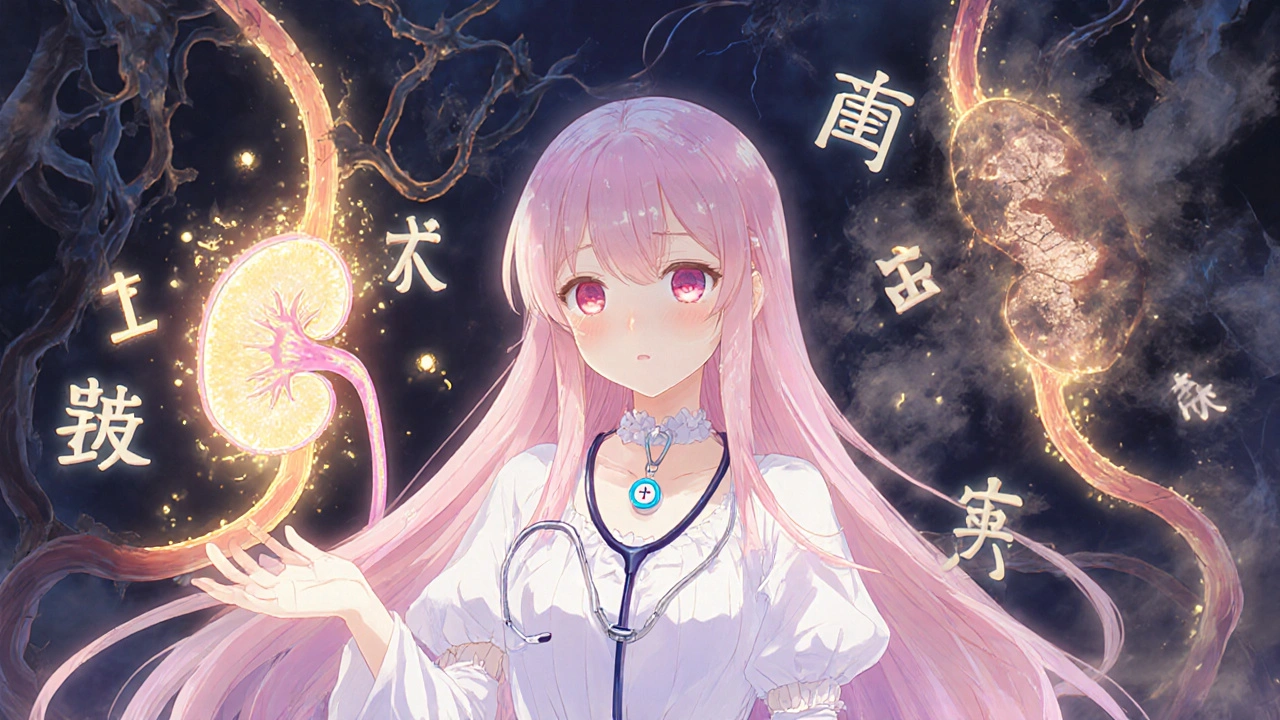Renal Artery Stenosis: Causes, Risks, and How Medications Affect Kidney Blood Flow
When the renal artery stenosis, a narrowing of the artery that supplies blood to the kidney. Also known as renal artery narrowing, it often happens when plaque builds up over time—just like in heart arteries—and cuts off the kidney’s oxygen supply. This isn’t just a blood vessel issue. It’s a signal that your body’s pressure control system is out of balance. The kidney thinks it’s not getting enough blood, so it releases hormones that jack up your blood pressure, even if your heart and arteries are fine. That’s why many people with renal artery stenosis have high blood pressure that won’t respond to normal meds.
This condition is closely tied to atherosclerosis, the hardening and clogging of arteries with fatty deposits. If you’ve got heart disease, diabetes, or high cholesterol, your risk goes up. It’s also more common in people over 50, especially those who smoke. Less often, it’s caused by fibromuscular dysplasia—a condition where the artery walls grow abnormally, mostly in younger women. Either way, the result is the same: less blood reaches the kidney, and the kidney responds by raising your blood pressure.
What makes this tricky is that many people don’t feel anything until their kidneys start failing or their blood pressure becomes extreme. That’s why it’s often found during tests for stubborn high blood pressure or declining kidney function, how well your kidneys filter waste from your blood. Some meds, like ACE inhibitors or ARBs, can actually make kidney function drop suddenly if renal artery stenosis is present but undiagnosed. That’s why doctors check kidney levels before and after starting these drugs. It’s not about avoiding them—it’s about using them safely, with the right monitoring.
And it doesn’t stop at blood pressure. Poor kidney blood flow can mess with fluid balance, cause swelling in the legs, and even lead to heart failure over time. People with this condition often need a mix of lifestyle changes, careful medication timing, and sometimes procedures to open the artery. But even then, the goal isn’t always to fix the artery—it’s to protect the kidney and control pressure before damage sets in.
Below, you’ll find real-world advice on how medications, diet, and other health conditions interact with renal artery stenosis. From how protein-rich meals affect certain drugs to why some blood pressure pills need extra caution, these posts give you the practical details you won’t get from a textbook. No fluff. Just what matters for managing this quietly dangerous condition.
ACE inhibitors can cause sudden kidney failure in people with renal artery stenosis. Learn why this contraindication exists, who’s at risk, and how to avoid dangerous mistakes.

 Pharmacology
Pharmacology